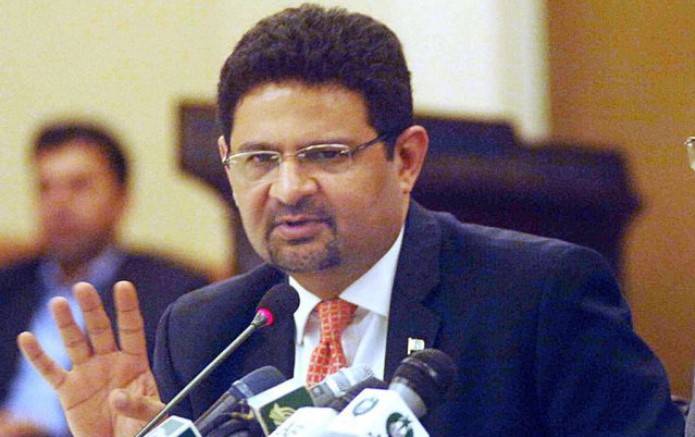Govt willing to curb fuel subsidies as demanded by IMF, says Miftah
Also agrees to end business tax amnesty scheme: Admits rich people are actually benefiting from every subsidy: Says Pakistan needs new economic model

Stay tuned with 24 News HD Android App

Pakistan's new finance minister on Friday agreed with International Monetary Fund's (IMF) recommendations to reduce fuel subsidies and end a business tax amnesty scheme, pledging to pursue structural reforms to boost a crisis-wracked economy, reported 24NewsHD TV channel.
The International Monetary Fund in 2019 approved a $6 billion loan over three years for Pakistan but disbursement has been slowed down by concerns on the pace of reforms.
Finance Minister Dr Miftah Ismail, who took office this month after a previous government lost a no-confidence vote, said he had "good discussions" with the IMF on a visit during the Washington-based lender's annual spring meetings.
"They've talked about removing the subsidy on fuel. I agree with them," Ismail, himself a former International Monetary Fund economist, said at the Atlantic Council.
"We can't afford to do the subsidies that we're doing. So, we're going to have to curtail this," he said.
He said that former prime minister Imran Khan, seeking to avoid ouster, set a "trap" for his successors through heavy subsidies on fuel and electricity, as well as a tax amnesty scheme for businesses -- measures that derailed a disbursement from the IMF loan.
"He gave an amnesty to businesses for setting up factories so that they don't have to pay taxes, or even if they evaded taxes that's ok," Ismail told reporters at an event organized by Pakistan's embassy.
Miftah Ismail, however, said that some targeted subsidies should remain for Pakistan's poorest amid sky-high global prices.
New Prime Minister Shehbaz Sharif has vowed to jumpstart a moribund economy, certain to be a major issue in elections due by late next year.
Pakistan has repeatedly sought international support and suffers from a chronically weak tax base.
Ismail said that Pakistan, the world's fifth most populous nation, needed to move to a new economic model by removing obstacles and promoting exports to the world. "We have such an elite-benefitting country that almost every subsidy that you can speak of actually goes to the richest people," he said.
Ismail said his immediate goal was reining in double-digit inflation -- a target complicated by lifting fuel subsidies -- and kickstarting job creation.
He denied Pakistan was in danger of defaulting on its debts, with foreign reserves currently standing at $10 billion, and much of its bilateral debt held with friendly countries China, Saudi Arabia and the UAE.
But Ismail said there was "never a wrong time to do the right thing."
"If what we claim is true, and we are actually more competent, then we should be able to make a difference in a few months. And if we don't, we'll be thrown out by the people, which is fine."
Addressing the Atlantic Council event, Miftah Ismail highlighted the economic agenda and priorities of the newly-formed government in Pakistan, saying its aim is to bring about economic and fiscal stability leading to recovery and growth.
While achieving that objective, he said the government will ensure that this growth is all inclusive by taking care of the poor segments of the society.
Finance Minister Ismail arrived in Washington on Thursday evening to attend the spring meetings of the World Bank and International Monetary Fund (IMF).
During his four-day visit in the US, he will also discuss the continuation of the stalled IMF programme for Pakistan.
In his remarks, the finance minister reiterated the government’s commitment to attract US investment in all sectors of Pakistan’s economy by creating business friendly environment. He added that the government also recognizes the potential of financial technology and digital economy, and the sector will be further facilitated.
Ismail said the government would take stepwise measures to ensure robust increase in Pakistan’s exports to resolve the balance of payment and current account deficit issues.
Frederik Kempe, President of Atlantic Council, in his introductory remarks said that Pakistan and the US had a longstanding partnership based on shared values of democratic governance, regional security and economic growth, adding that the think-tank is particularly working to promote economic cooperation between the two countries. In this regard, he appreciated the role of Pakistani-American diaspora.
The finance minister also answered questions from the participants that included US government officials, economists, think-tank experts and prominent Pakistani American entrepreneurs.
With inputs from news agencies.
